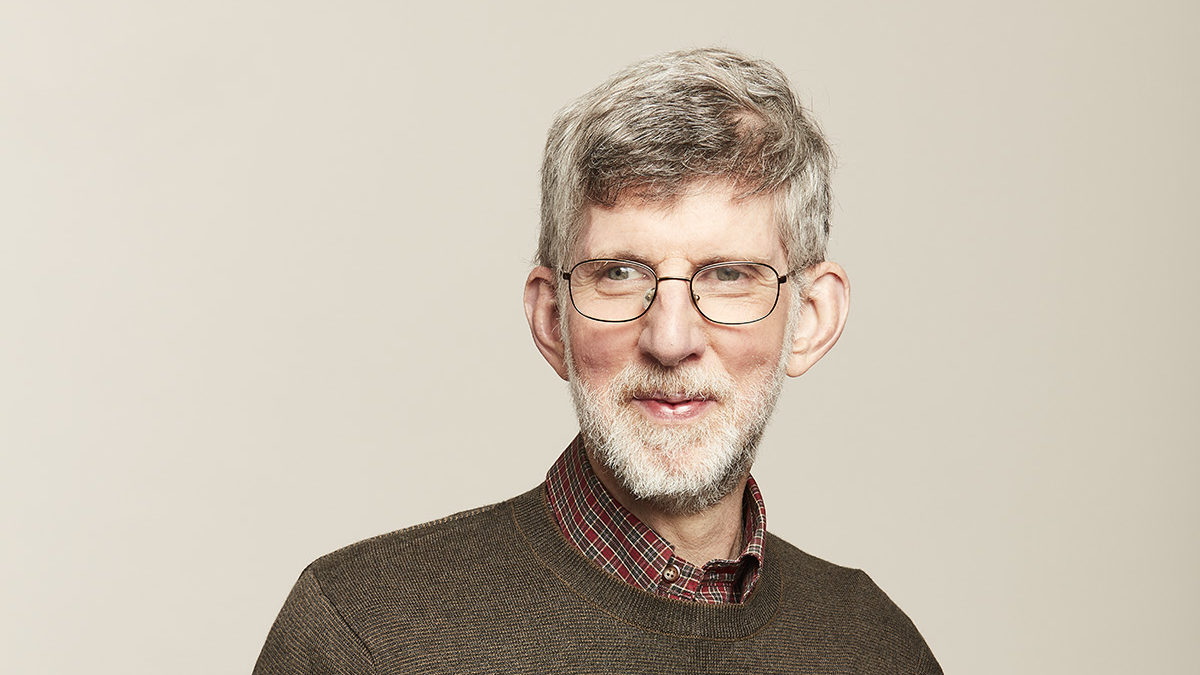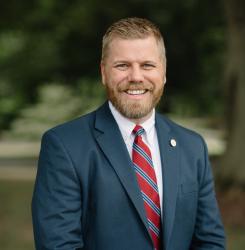In today’s ever-changing world, contentment seems like a forgotten virtue. The pace of our gig economy only seems to be speeding up, as institutions and organizations all struggle to adjust to new realities. This is why Marvin Olasky, a seasoned Christian journalist, has written his latest book, Pivot Points: Adventures on the Road to Christian Contentment. We live in a time of “pivots,” he writes, and “the ability and willingness to pivot at times are essential—but freedom from fear requires either a colossal ego or a colossal God.” The book is a memoir, seasoned reflections from someone who has spent years pivoting and struggling with fear and faith. Some pivots he chooses; others not. He avoids making some decisions, while others seem to take him in the wrong direction. At the end of his life, though, he remains grateful to God for the journey. And the key theme of the book is finding contentment amid the chaos, “Don’t worry about pivots,” he writes, “don’t get stuck in one place, looking only one way, out of fear.” Instead, we should not be afraid “to move around,” Olasky writes, and “learning from people you otherwise would not meet and exposing yourself to ideas you otherwise might never encounter.”
Olasky begins with his early years, which are marked by the radical pivot from his Orthodox Jewish upbringing—complete with a rabbi teacher who could quote nearly every portion of the Hebrew Bible from memory—to his conversion to communism. Both his stubbornness and pride emerge in these early years when he refuses to attend bar mitzvah class, declaring “I’m a man; I’m plotting my own course.” He also describes his intellectual influences in these early years, professors that introduced him to the Western intellectual tradition.
During this season, Olasky becomes an addict, not in the literal sense, but one who transitions from “philosophical cocaine to ideological fentanyl.” He walks the path toward radicalism and makes the “worst decision of his life,” becoming a member of the Communist Party. He was so committed that he travels across the Trans-Siberian Railway, over 6,000 miles to Moscow, to make contact with Russian authorities. But they never appear. Olasky remains thankful for “whatever went wrong in the deal that would have made me a traitor.”
After college, Olasky enters the doctoral program at the university of Michigan to study communism but then experiences yet another dramatic conversion. One day, after defending Lenin’s views in a literature class, he grabs a hamburger for lunch and settles into a chair by a window to soak in Lenin’s famous essay “Socialism and Religion.” Religion is an “opium for the people,” according to Lenin, and the “spiritual booze in which the salves of capital drown their human image.” For eight hours, Olasky sits in that chair as new thoughts begin to emerge. “It’s hard for me to convey the strangeness, the otherness of this experience. No drugs, no dreams, just sitting in the chair, hour after hour, suddenly thinking Marxism is wrong.” He leaves the chair a different person. “At three o’clock I’m an atheist and a Communist. At eleven p.m. I’m a believer in a God of some kind. Hardly born again, but no longer dying.”
With his conversion, Olasky takes some incremental steps toward contentment, and other blessings start pouring in: he gets married, lands a good job speechwriting for the DuPont Standard Oil company, and then later takes a position in the journalism department at the University of Texas, where he begins researching and writing.
The years that follow are the busiest. While still teaching and after he had published Prodigal Press (with coauthor Warren Cole Smith), in 1994 he agrees to become the editor of WORLD magazine at the behest of Joel Belz, “because it’s one thing to teach about the problems of journalism and another to try doing better, week after week.” He also realizes from teaching the history of journalism that “many Christian publications have failed because they were solemn and preachy.” He resolves not to make that mistake.
Around this time, Newt Gingrich begins recommending Olasky’s book The Tragedy of American Compassion, which argues that conservatives lost the poverty war to the left because they kept saying that fighting poverty was too expensive. But it’s not for a society as wealthy as ours. Suddenly Olasky is thrust into the political spotlight. Weekly Standard editor Bill Kristol says that Olasky’s book “hit the conservative movement like a thunderbolt.” So Olasky pivots into politics as George W. Bush is preparing his next presidential run. Bush adopts the campaign slogan “compassionate conservatism” from Olasky’s work, which helps propel him into the White House. Karl Rove asks Olasky to chair a campaign task force about public policy changes that could help the poor and establish a role for religious groups.
But September 11 changes everything. Compassionate conservative becomes an afterthought, so Olasky moves back to full-time journalism and teaching. But the world keeps changing—and fast—with the rise of social media giants like Facebook and online advertising, which affects traditional journalism. These technological and information innovations continue to escalate until we reach Olasky’s final act, which he describes as “turbulence and contentment.” Just like in other Christian institutions, the political conflicts that began to heat up after 2015 incite intense discussions between the editors at WORLD and its the board. Disagreements over Trump and the handling of the pandemic, for example, divide conservatives, and Olasky soon recognizes that “anger gets clicks.”
During the Trump presidency, WORLD’s paid circulation drops by about 3% each year, and questions swirl about readership switching to other, more pro-Trump conservative outlets. Olasky becomes increasingly concerned about extremism on both the right and the left. His background in radical politics made him sensitive to the problem of “ideological addiction.” Amid the political whirlwind, WORLD makes the executive decision to launch World Opinions. Olasky objects but tries to make it work, only eventually to resign from the magazine on November 1, 2021, the 48th anniversary of his deconversion from Marxism experience. In the book, Olasky appends the article he wrote that gives his side of his departure from WORLD, entitled “A Wrinkle in Journalistic History.” While he disagrees with the board’s decision regarding the venture into politics, he nevertheless expresses gratitude for all the opportunities the Lord has given him.
This memoir is timely wisdom for an age of intensified pivots. Cultural shifts are happening at a rapid pace, and we all need to adjust. But throughout Olasky’s life, there was an ongoing struggle between the principles that guided him and the contingencies of the moment. Olasky writes, for example, that his watchwords are “biblical journalism and compassionate conservatism.” This sounds good in the abstract, but all kinds of faithful people have prudential disagreements over how these things look on the ground amid the ever-changing torrents of the culture.
And that’s what makes this book so fascinating, as the reader is given a long runway to see the dramatic cultural changes in recent history. We walk with Olasky as he struggles with many changing institutions, including government and educational institutions, but especially journalism. Olasky doesn’t like the direction that journalism is headed, and he should know—he published Prodigal Press to reform journalism and to create a space for what he calls “biblical journalism.” But amid all our cultural changes, what exactly constitutes “biblical journalism” today?
Throughout the book, the journalistic task is characterized in a variety of ways. A journalist’s calling, Olasky writes, is to investigate and tell the truth, but he also insists that the journalist should never “place ideology above theology.” “Our goal,” he continues, “is not to make readers feel cozy but to introduce them to different people, places and ideas.” Elsewhere, Olasky states that “it’s an ethical imperative to challenge readers and viewers, not pander to them.”
So is journalism in our new age simply about telling the truth? Persuasion? Challenging readers’ assumptions? All the above? Even Olasky’s use of “wrinkle” in his final letter, “A Wrinkle in Journalistic History,” is another interesting choice. I wonder if “wrinkle” is the best interpretation of events as they unfold in God’s providence. I think “pivot” is, finally, the better term. What we’re facing now is a new pivot in journalistic reporting, as competing visions of journalism vie for cultural real estate and every institution finds itself having to adjust to fresh demands. In some ways, this might be an improvement over previous years, when reporters hid behind their interpretations while claiming objectivity.
But there are certainly downsides, and Olasky’s warnings about extremism are related to another theme that surfaces throughout the book: fear. His time among communists made him sensitive to the use of fear as a motivator, and an “anti-anger” sentiment is a prominent effect of his conversion away from communist ideology and toward God. Fear can be a paralyzing emotion that drives us to insanity, but the Gospel holds out a different vision. Throughout the book, Olasky turns to Jeremiah Burroughs’ The Rare Jewel of Christian Contentment for wisdom. In fearful times, Olasky leaned on Burroughs’ words: “Nothing befalls you but there is a hand of God in it” and always “make a good interpretation of God’s ways toward you.” But like many of us, Olasky admits, “I’m a slow learner,” and it’s often hard to see God’s greater purpose for leading us through these pivots. And yet, taking these words to heart and looking back over his life, Olasky announces that he has found contentment.
I think his sentiments regarding contentment are best summarized in a poem he cites several times throughout the book—“The Hound of Heaven,” composed in the 1890s by Francis Thompson. Throughout his story and all his pivots, Olasky is certain that God was always there pursuing him. He takes great comfort in this, and so can we. Amid all our ups and downs, fears and changes, God, the Hound of Heaven, pursues us:
I fled Him, down the night and down the days;
I fled Him, down the arches of the years;
I fled Him, down the labyrinthine ways.
And yet, God pursued
With unhurrying chase,
And unperturbed pace,
Deliberate speed, majestic instancy.

